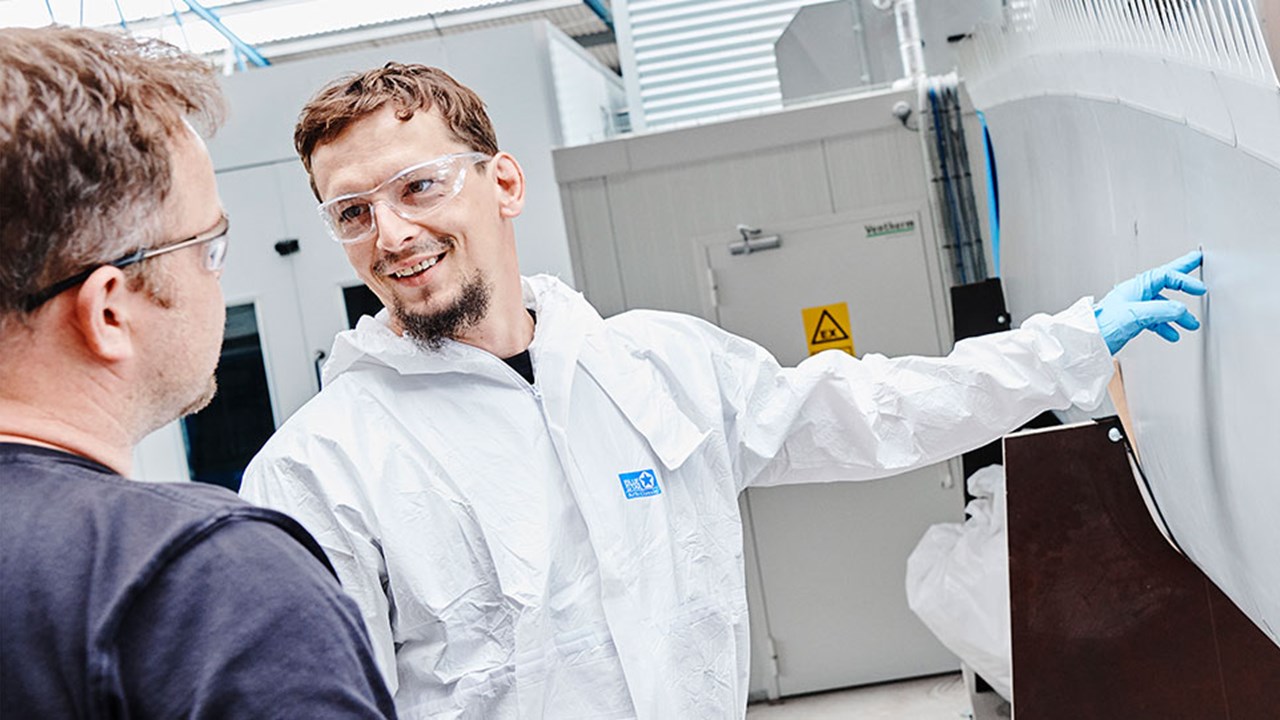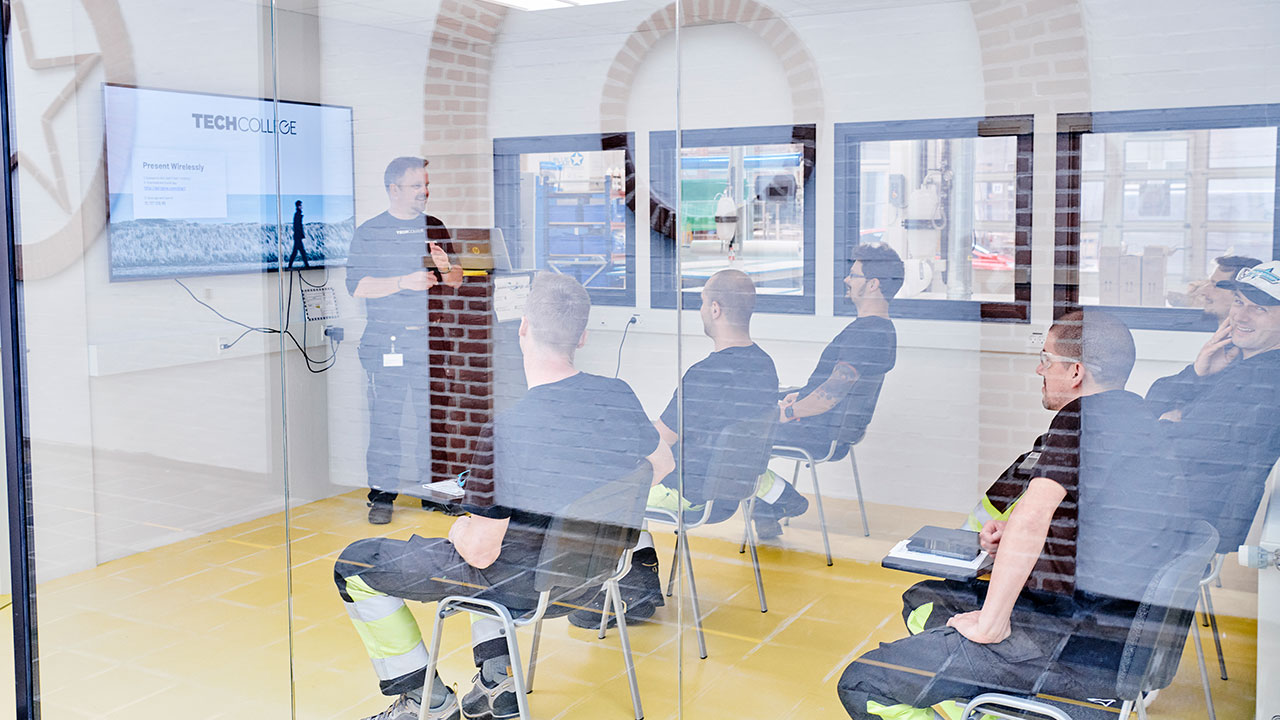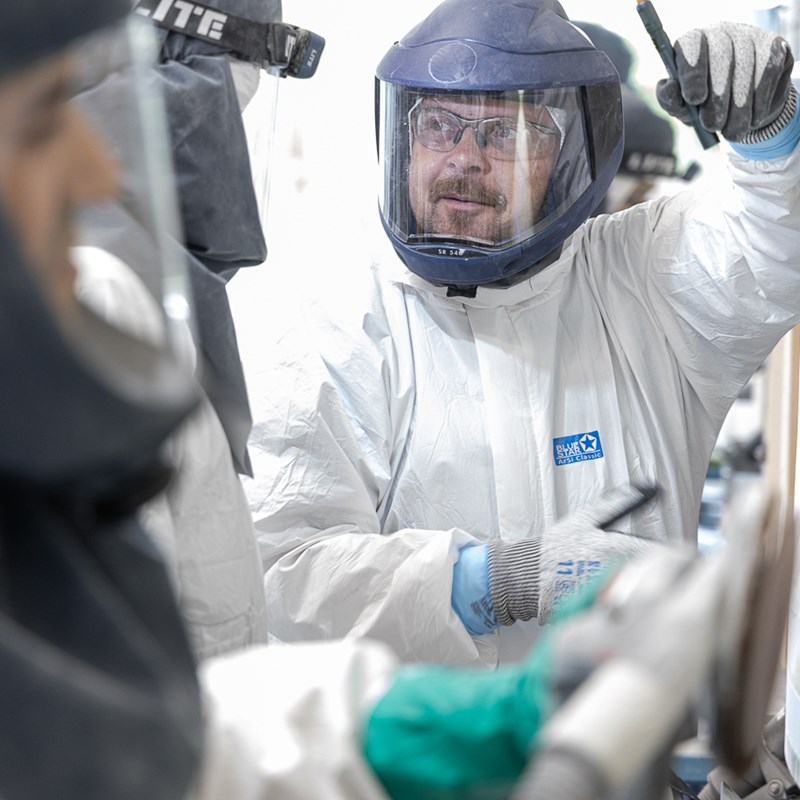Educational principles

A learning-centered approach to skills development and post-qualifying training
At TECHCOLLEGE Composite, we have many years of experience within skills development and post-qualifying education of employees and blade technicians for the composite industry - having the wind turbine industry as our main area of expertise. Over the years, we have developed and refined an educational approach to this type of learning and training. This ensures that our course participants achieve a broader sense of process skills, as well as a more competent and professional approach to their work.
Employees’ co-operation skills are refined through a deeper understanding of how different types of tasks are related, as well as technology of materials and work planning. By providing the course participants with a broader sense of process skills and knowledge, we believe that they will be able to comprehend the work flow from a wider perspective and be aware of other job functions’ part in the manufacturing and service tasks. This will ensure a higher quality through improved cooperation and higher skills level among employees.
All of our teaching and training set-ups are made to promote skills and attitudes that a professional and competent employee within the wind turbine industry must possess. That is:
- Basic knowledge about composite and blade construction and manufacturing, as well as the materials and processes these include
- Good craftsmanship
- Good co-operative skills
- Ability to work independently and solve problems that are within the employee’s decision-making authority
- Quality-consciousness
- Strong awareness of health and safety at work
In order to provide our students and course participants with these skills, we plan and conduct teaching and training based on the following core principles:
- Learning leadership - we set the framework for the learning situation and facilitate the participants’ learning processes, interactions, and reflections
- Learning by doing – participants learn and build skills and competencies through hands-on training that supports theoretical knowledge and principles.
- Learning and development through reflection – participants’ practical experience is converted into learning through systematic reflection facilitated by instructors
- Quality - we work continuously and systematically with developing and improving our teaching in general and specific training courses, this through participant evaluation, teaching observation and mentoring, as well as ongoing co-operation with regards to companies’ needs, expectations, and satisfaction
Courses are planned and carried out using varied learning and teaching methods. Participants solve practice-based tasks individually and in groups. Learning is individual. The same goes for acquisition and development of skills and technical knowledge. Learning occurs both during the course and within the interaction with the other participants. We use formative assessment and feedback throughout the course in order to support and develop each participant’s individual learning process.


Assessment, feedback and evaluation
At TECHCOLLEGE Composite, we employ different types of assessment and evaluation depending on the nature of the course content and learning objectives. Feedback is a fundamental part of the assessment and evaluation of the participant's learning curve.
We use three different types of assessment, which all are based on the dialogue between course participants and instructors:
- Participant self-assessment
- Formative feedback
- Summative feedback
Participant self-assessment is based on previously agreed-upon criteria, such as a company's specific requirements for quality, planning, security, etc. This assessment can be based on a set form that is filled out by the participant prior to a conversation with the instructor, who will be providing a positive formative assessment and feedback based on the form along with any other observations.
Formative feedback is based on continuous observation and positive feedback to each individual participant in the course. This evaluation form aims to increase each individual's learning benefit so that everyone feel empowered from their own starting point.
To promote participant learning, feedback must be:
- constructive. Not only does it have to deal with the strength and weaknesses of a given assignment or performance – it must also address the ways that the participant can improve his or her performance.
- timely. Feedback must be given when the participant is working on or has just finished the task that is being assessed.
- meaningful. It should be aimed at individual needs, be given in relation to specific assessment criteria, and must be received by the participant in time to benefit subsequent work.
Summative evaluation is based on assignments, exercises, and tests or certifications, but it can also be based on instructor observations of the participant's performance throughout the course. The summative evaluation will result in a certification or diploma if the participant’s performance meets the objectives for the course.
Evaluation forms
We document assessments, evaluations and other observations on our evaluation forms, which participants will receive on the last day of the course. This evaluation is always accompanied by a conversation between the instructor and the participant, in which the content of the form is explained and the participant will receive feedback on his or her performance.
These evaluation forms will be available for employers when the course is completed.
In case a participant does not fulfill the agreed-upon course objectives and therefore does not obtain a certificate or diploma, we will immediately report this to the participant's employer.

